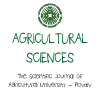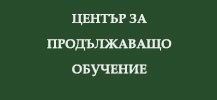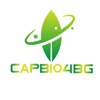Soil Fertility and Fertilization
|
Course title: |
Soil Fertility and Fertilization |
|
|
Course code: |
AFSFF |
|
|
ECTS: |
5 |
|
|
In-class hours |
Lectures: |
30 |
|
Laboratory work/Tutorials: |
30 |
|
|
Self-preparation hours |
Practical training: |
35 |
|
Other: |
30 |
|
|
Total hours: |
125 |
|
|
Language: |
English |
|
|
Study cycle: |
BSc, Master |
|
|
Semester: |
Winter, summer |
|
|
Faculty: |
Faculty of Agronomy |
|
|
Name of the lecturer(s): |
Chief Asst. Prof. Nikolay Minev, PhD |
|
|
Mode of delivery: |
Face-to-face |
|
|
Prerequisites: |
Knowledge in soil science, plant physiology, soil microbiology is desirable |
|
|
Learning outcomes of the course unit: |
The lectures deal with the nutrient supply to the plant and the use of these substances by the plant in process of plant nutrition. Other topics of the course cover the following questions: ® Function and importance of macro and micro nutrients, nutrient cycles, the diagnosis of deficiency and excess symptoms. ® Relation soil-plant (nutrient transport from soil to plants) ® Soil fertility and the ability of the soil to supply plants with nutrients (nutrient availability in the soil). ® Mineral and organic fertilizers and the rules for their efficient use at different types of corps. |
|
|
Course contents: |
I. LECTURES – 30 hours 1. Soil as a source of nutrients for plants 2. Soil organic matter 3. Essential plant nutrients 4. Physiological reaction of salts 5. Nitrogen plant nutrition and fertilization 6. Phosphorus plant nutrition and fertilization 7. Potassium plant nutrition and fertilization 8. Plant nutrition with microelements 9. Fertilizing efficiency with macro and microelements depending on soil conditions. The role of foliar fertilization in modern agriculture. 10. High efficiency fertilizers – slow-acting fertilizers, fertilizers with controlled action, stabilized nitrogen and complex fertilizers. Main agrochemical properties and environmental benefits of using these types of fertilizers 11.Nitrification and urease inhibitors (nitrogen stabilizers and stabilized nitrogen fertilizers) 12. Organic fertilizers – manure (solid and liquid), composts, green manure 13. Fertigation 14. Control and management of fertilization and mineral nutrition of cereals 15. Control and management of fertilization and mineral nutrition of industrial crops 16. Control and management of fertilization and mineral nutrition of fruit crops and vineyards
II. LABORATORY PRACTICAL WORK – 30 hours 1. Determination of the ionic composition of industrial fertilizers (4h) 2. Determination the needs of the soil for liming. Liming of acid soils (4h) 3. Determination of ion exchange capacity of the soil (4h) 4. Determining the need for nitrogen fertilization (4h) 5. Determining the need for phosphorous fertilization (4h) 6. Determining the need for potassium fertilization (4h) 7. System of fertilization of crops in the crop rotation (6h) |
|
|
Recommended or required reading: |
1. Bergmann W, 1992. Nutritional disorders of Plants, Gustav Fischer Verlag Jena publisher, 741 p. 2. Brady N. 1984, The nature and properties of soils, Macmillan Publishing Co., Inc. New York, 639 p. 3. J. Benton Jones, Jr. 2003. Agronomic Handbook, Management of Crops, Soils, and Their Fertility, CRC PRESS, pp 372. 4. Mengel K., E. Kirkby, 1987. Principles of Plant Nutrition. 5. Pan Ming Huang, Yuncong Li, Malcolm E. Sumner. 2011. Handbook of Soil Sciences: Properties and Processes, Second Edition, by CRC Press 1442 Pages. 6. Rowell D. Soil Science: Methods and Applications. Longman Group UK, 1994, 350 p. |
|
|
Planned learning activities and teaching methods: |
Monological explanation (lecture, presentation, tutorials) Dialogue methods(conversation,discussion) |
|
|
Assessment methods and criteria: |
Exercises evaluation, Written exam |
|
 - Събития по случай 80-я юбилей на АУ
- Събития по случай 80-я юбилей на АУ











